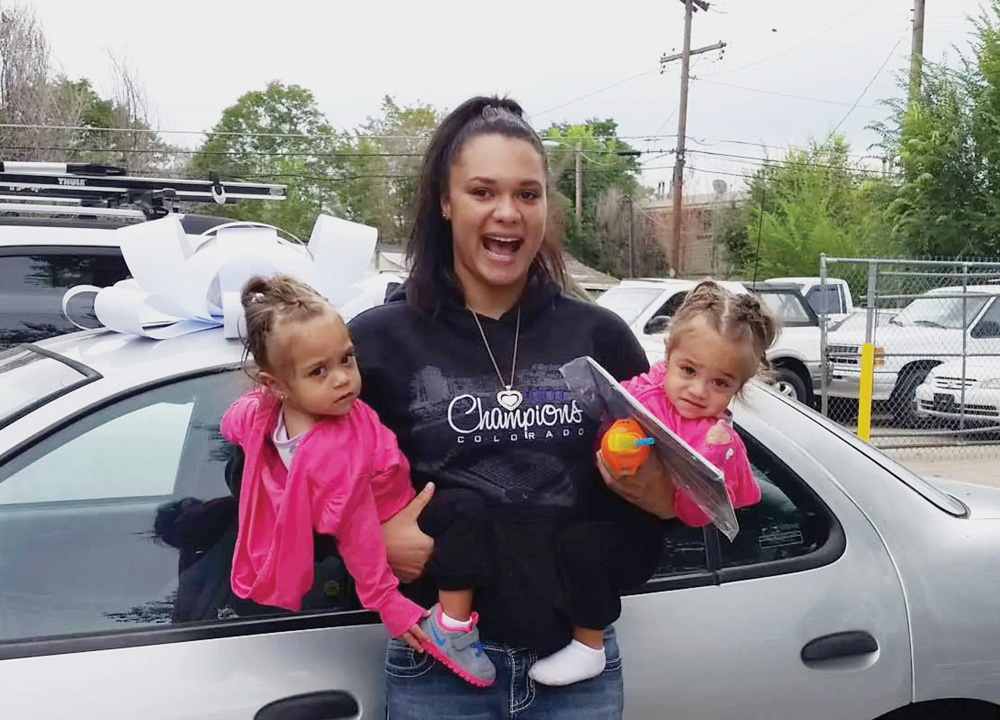For single mothers making multiple transfers a day on public transportation, there’s hope.
There was a time when Dan Georgopulos led an effort in help single mothers repair their homes, hence the name of the Denver-area organization he founded: Hands of The Carpenter. But then, “cars just hit us in the face,” he says, and his strategy for helping women create and sustain independent lives shifted. He opened an auto repair shop.
He had good reasons. Transportation expense can be debilitating. Among America’s lowest-income earners, the cost of transportation runs 29 percent of income. And without transportation, things fall apart. Every year, transportation issues get in the way of 3.6 million people getting healthcare. Food, shelter, and safety all come into play as a single mother balances shopping, work, affordable housing, and daycare.
Hands got down to business, literally. First came the for-profit garage, which was open to the public, but offering subsidized repair for women who qualified. Demand grew, so Hands partnered with other organizations. Eventually, the garage began to serve only single mothers in need. Next move: purchase of vehicle donation and placement program—a source of revenue, as many cars are resold for parts. Some are even deemed fixable.
Fixable is the key word. Automotive Service Manager Crystal Scott, who has a degree is auto repair, is blunt about many of the cars she sees. “DOA” is a common diagnosis.
What constitutes DOA? Here’s an early case: no brake pads, worn rotors, and a woman hoping for an oil change.
Sometimes there are tears.
Scott understands. She recalls life as a single mother without a vehicle, especially the punishing bus routes. “Home to daycare to work and back again,” she says. Client Services Director Margarita Pineda, also once a single mother, has a story to top Scott’s. With a warmth that speaks of her degree in hospitality, she describes a Hands client who was working, attending school, and shepherding her kids to daycare,“spending more than four hours a day in transit, making between five and eight transfers.”
Luckily, Hands’ solutions now go beyond a single repair. When her car is DOA, a client can turn in her vehicle and get credit toward a good car culled from the donation program and repaired. She agrees to a purchase plan, and she can return for maintenance at a discounted rate. Hands also makes referrals for other services, including transitional housing, training, and more.
Demand is growing. In 2018, Hands saw a 27 percent increase; in 2019, 55 percent.
This puts Georgopulos in mind of expansion. Hands saw 200 donated vehicles in 2016; the goal this year is 500. “It’s still not enough,” he says, because so few are fixable. But if Hands expands, what to do about staffing? “My board challenges me on that,” he says, noting that both Pineda and Scott are rare finds. “How do I find another staff of unicorns?”

